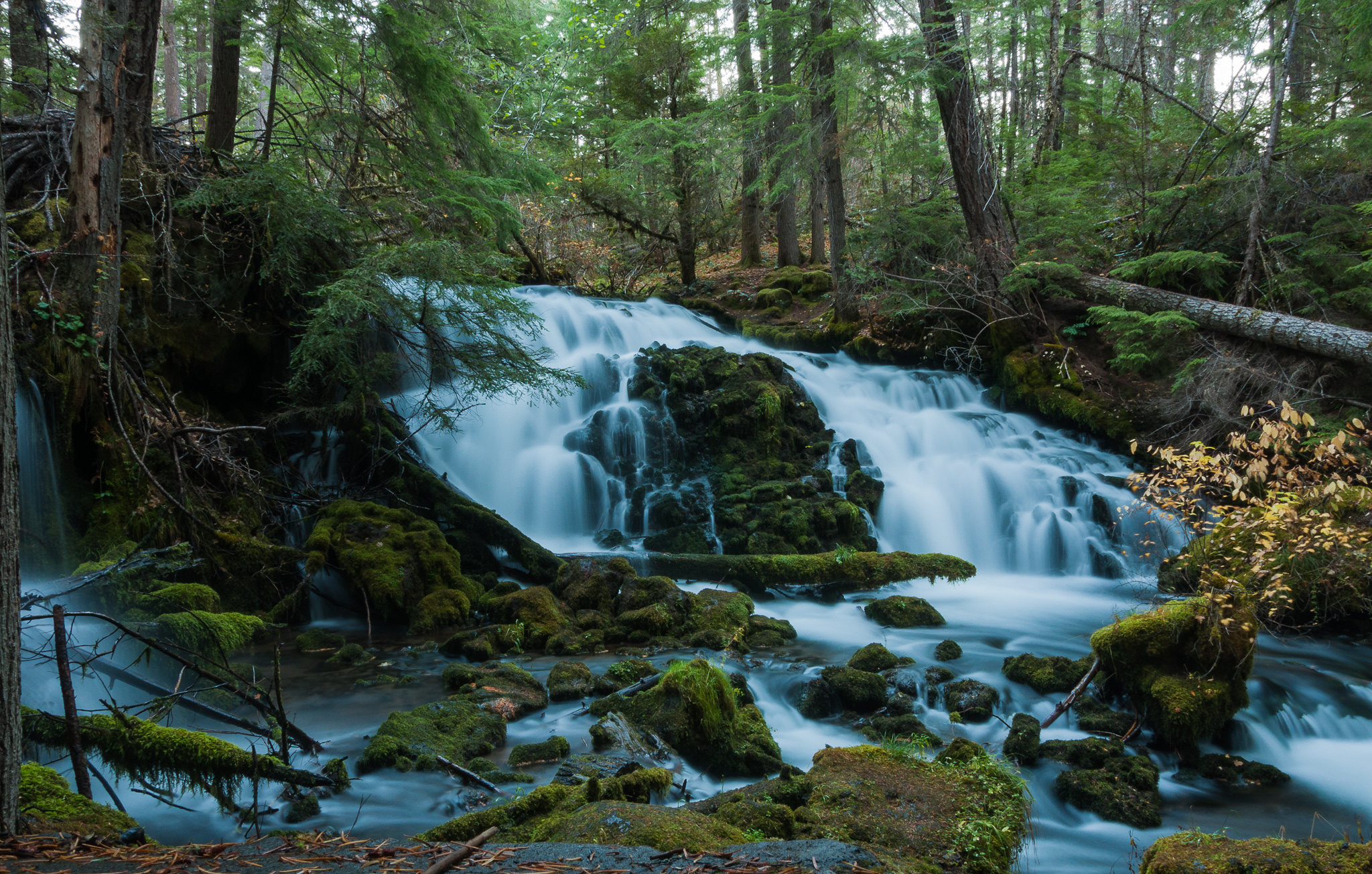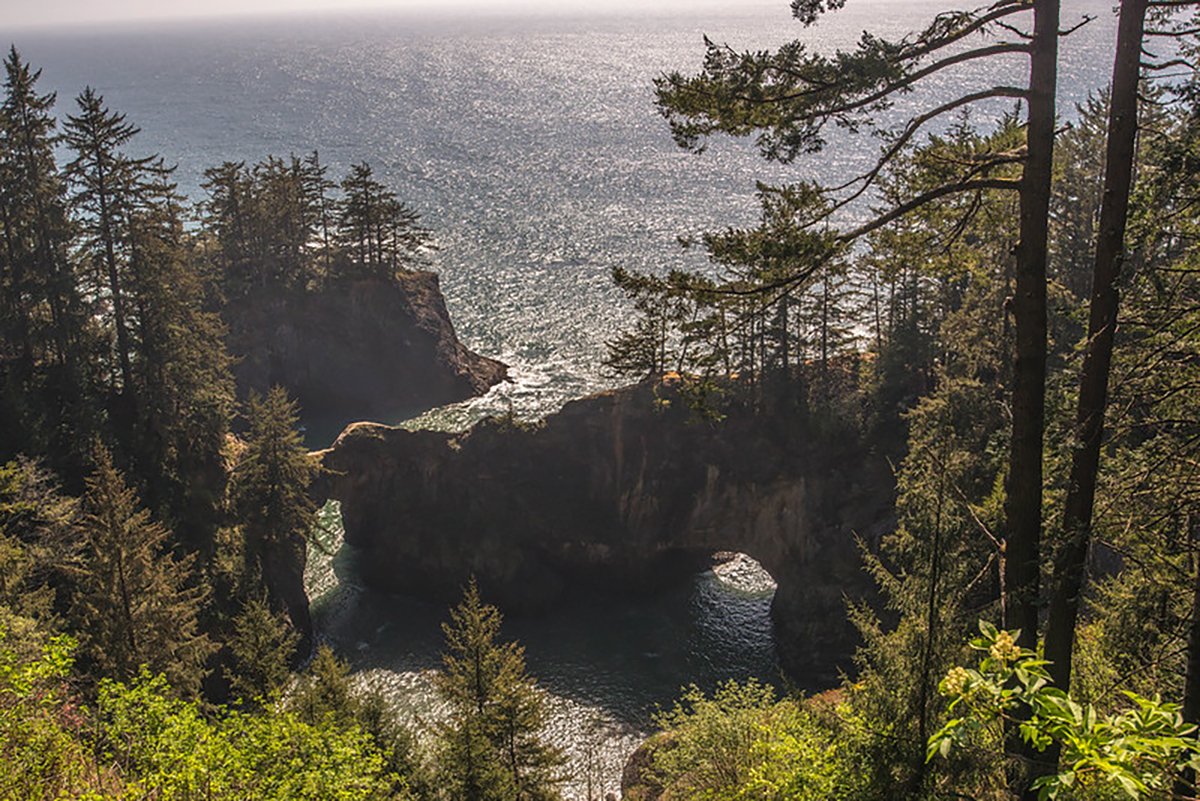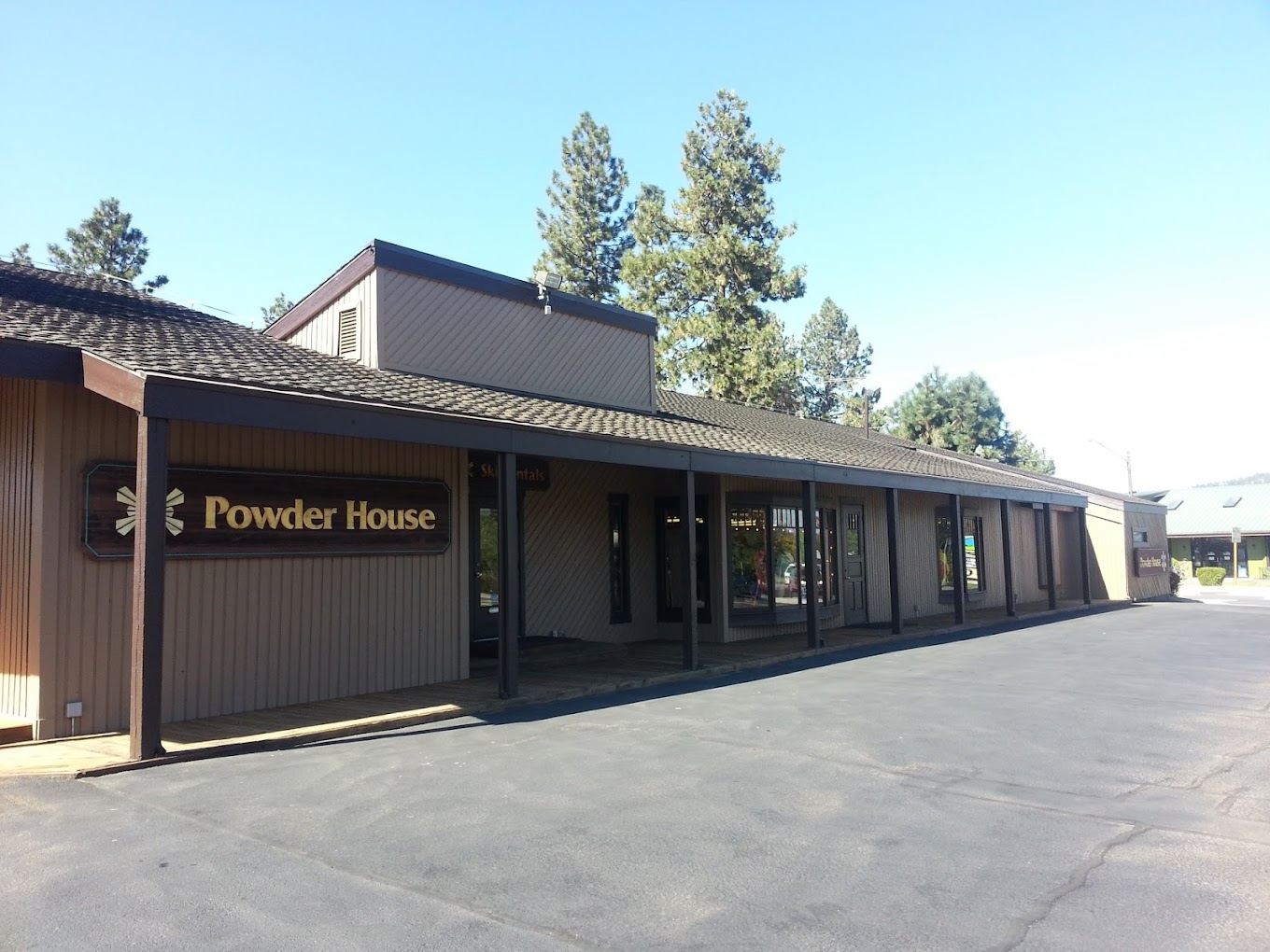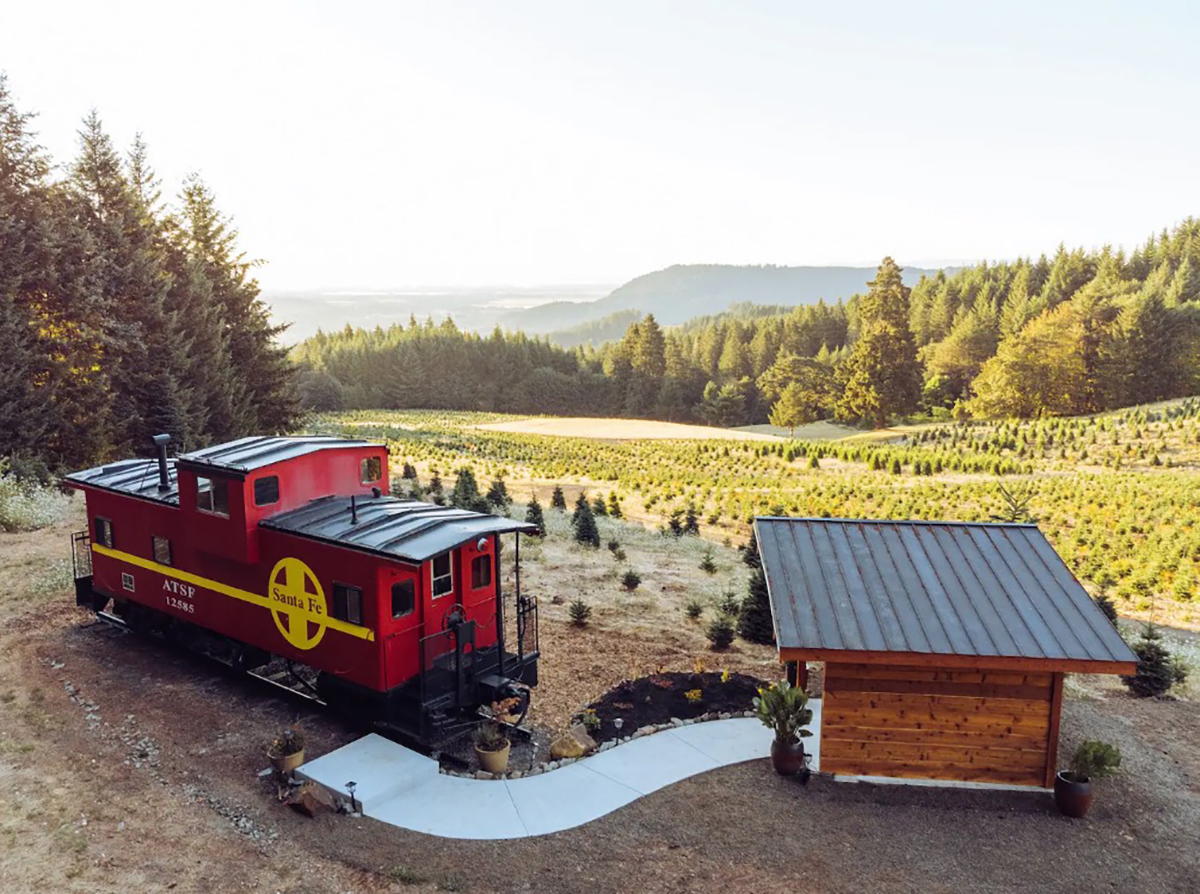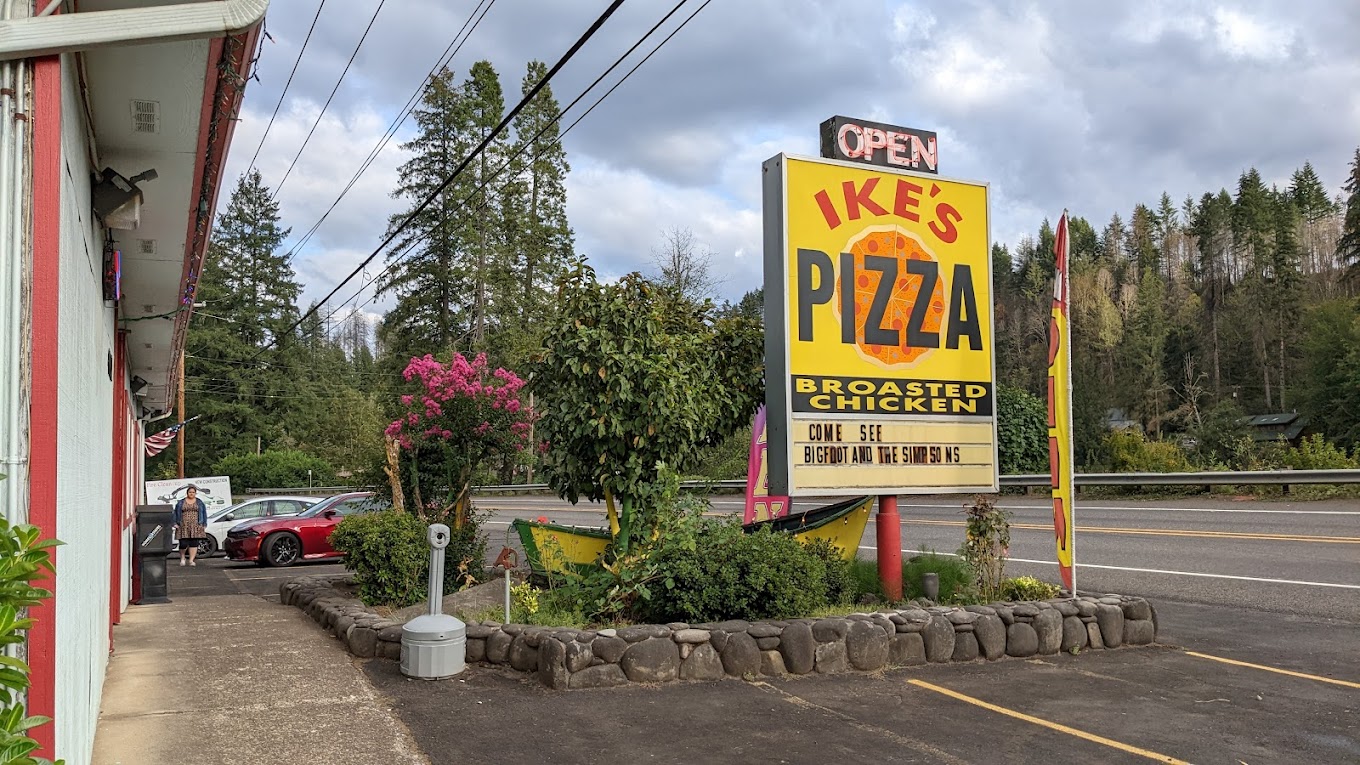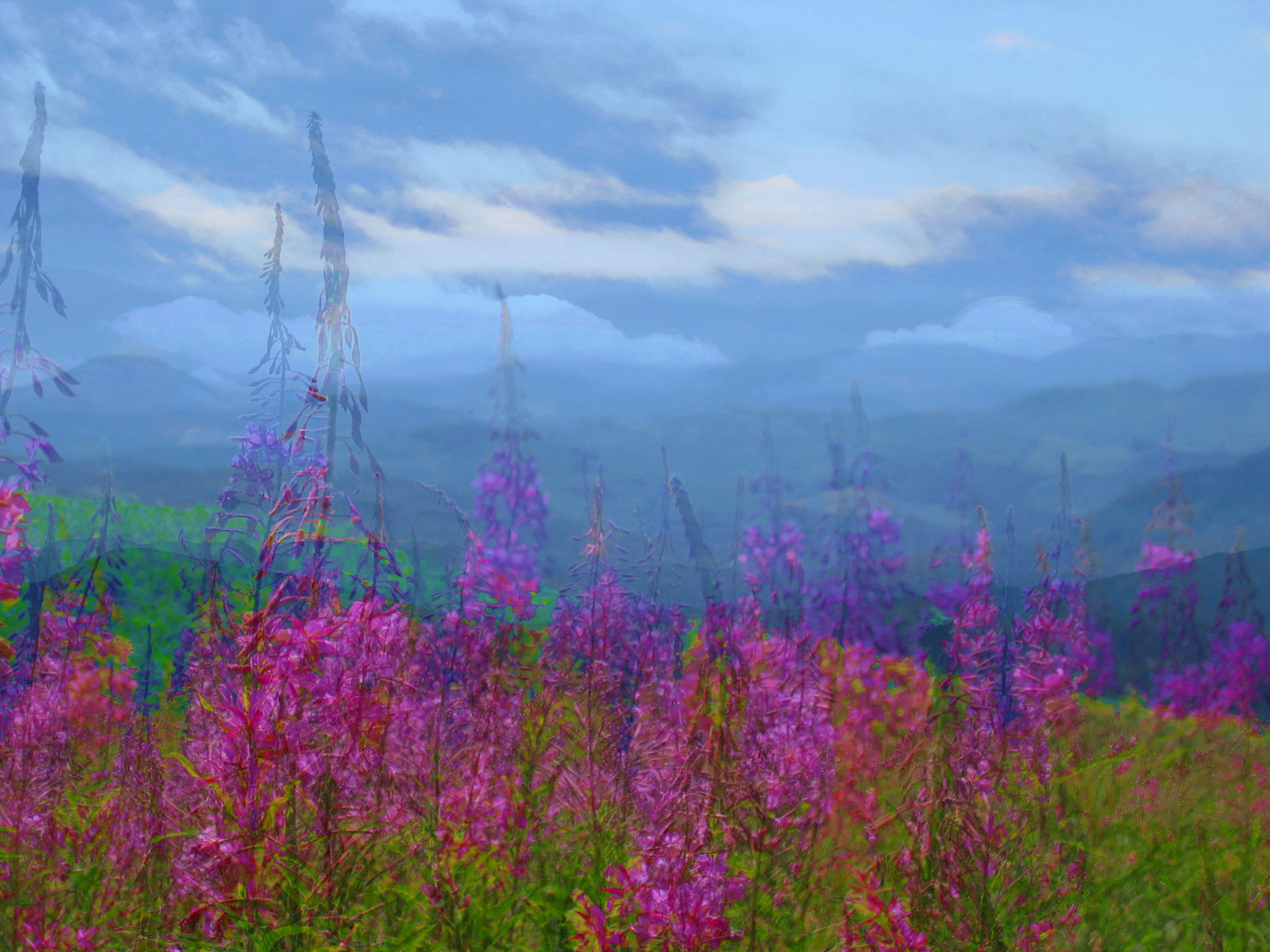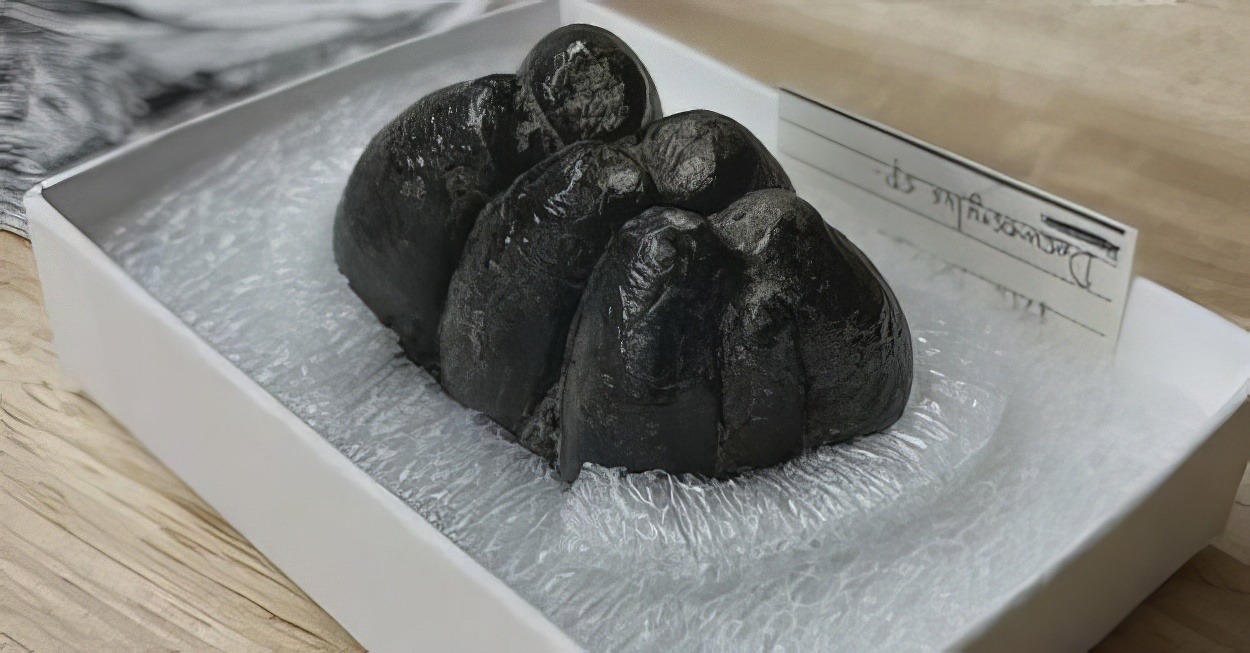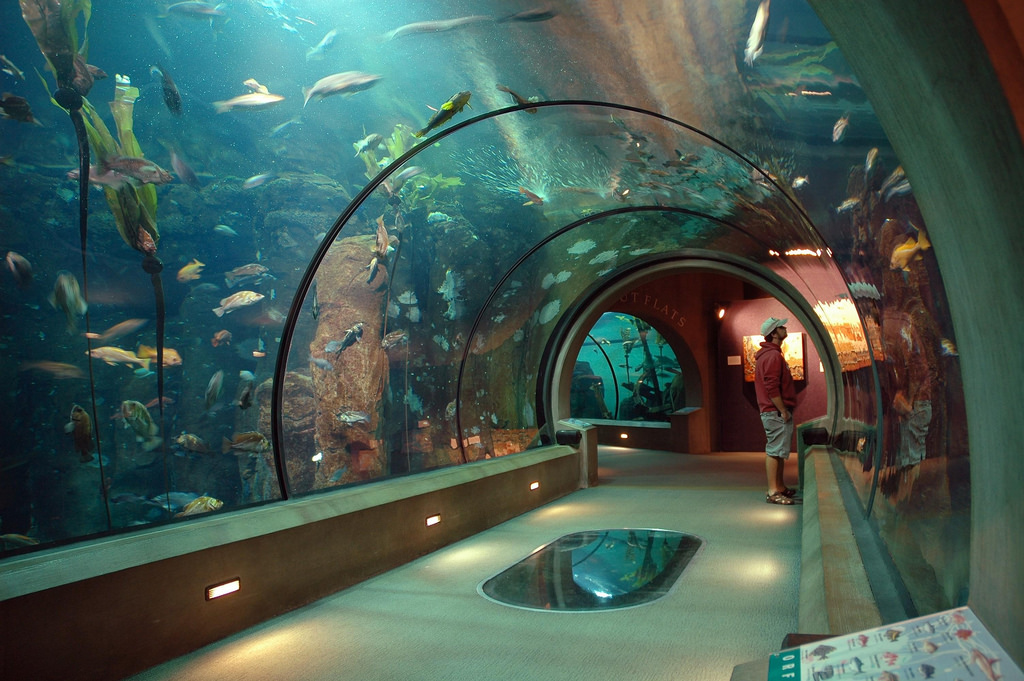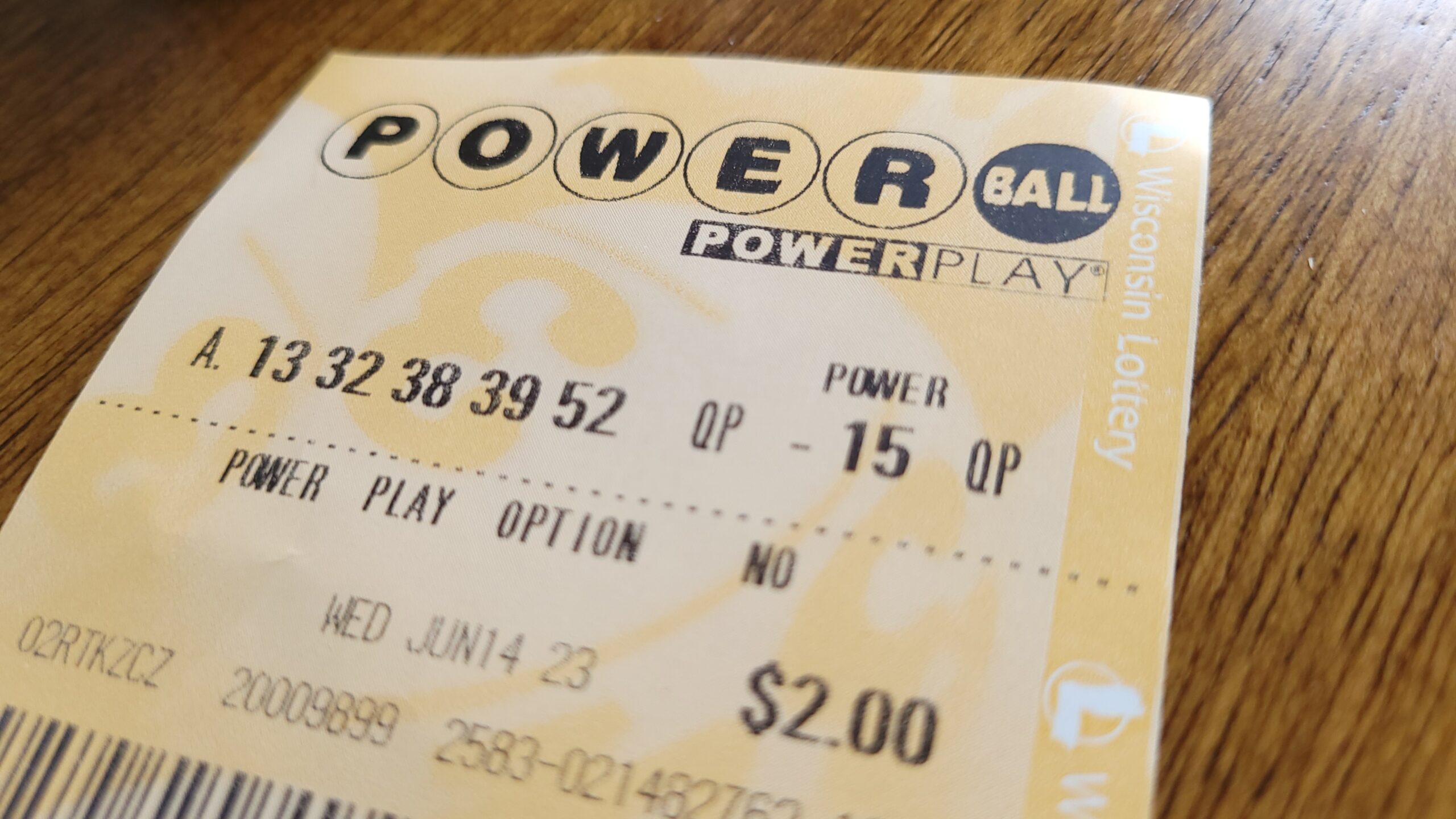Tide pools are one of my absolute favorite things about the Oregon Coast (right behind all the beachcombing). In fact, take me with you for a long walk on the beach and I'll be doing less walking and more crouching as I search for all the hidden treasures that the seaside has to offer. I'm a huge collector (some may say "hoarder") of small things; beach agates, tiny shells, unique pieces of driftwood. However, beachcombing is a totally different beast from tide-pooling. When observing these microcosms of marine life, certain rules must be exercised.

Two sea stars huddle together at low tide. / Image via / The Author / thePDXphotographer
So, what are tide pools anyway?
Tide pools happen when the ocean tide retreats and leaves seawater trapped in indentations in the sand or rocks. Tide-pooling is an outdoor activity that involves heading out to explore these mini-ecosystems during low tide. This is when the small pools of seawater are exposed and accessible, enabling you to observe all the marine habitats previously hidden by the churning waves. Tide pools are always full of unique surprises. Nothing ever stays completely the same in one, and none are absolutely alike. One may be filled with beautiful waving anemones, while another will be home to tiny coastal crustaceans and fish.
Before you strap on your waterproof shoes and grab your Google marine life encyclopedia, check out these tide-pooling tips for safety and fun.

A colorful Sea Anemone in the sands at Seal Rock, Oregon. / Image via / The Author / thePDXphotographer
Tips for the Best Tide-Pooling on the Oregon Coast
1. Leave No Trace
Each tide-pool adventurer (and beach-goer, for that matter) has an ethical responsibility. Oregon beaches are unique in the fact that they are free and accessible to the public (thank you, Governor Tom McCall). One way to make sure they remain that way is to bring a bag along with you, both for your trash and for junk that others may have left behind. Pack it in, pack it out.
2. Wear Good Shoes
Flip flops aren't going to cut it, folks. In fact, it's your feet that may end up cut if you aren't outfitted in the proper footwear. Waterproof boots are great as long as they have decent soles with good tread. The point here is that wet rocks are slippery, made so much more so by seaweed and algae clinging to them. I've landed hard on my butt more than a few times by Devil's Punch Bowl because the exploration was impromptu and I was in my Vans slip-ons. Rocks HURT. Falling isn't pretty, and more so dangerous. Better to land on your posterior than your head, but still...You've been warned.
3. Find a Tide Table Before You Go
I've gotten really excited about looking for tide pools, only to realize I showed up to the beach at high tide. At this point in the cycle, pools will be completely covered by the waves, resulting in well, nothing. Tide tables can be found in the form of little booklets, usually distributed at the front counters of local businesses and chambers of commerce. You can also Google "Tide Table [Beach You Plan To Visit]" to bring up a dozen or more sites with accurate information. Each calendar month is broken down by exact dates and times (each day has two high and two low tides, AM and PM).

The Devil's Punchbowl is one massive tide pool when the water retreats, making it both beautiful and dangerous to explore. Always know your tide tables! / Image via / The Author / thePDXphotographer
The BEST TIME to go tide-pooling is two hours before low tide. This gives you plenty of time to explore before the tide starts to come back in. Check out our Oregon Coast Tide Tables which covers not only Newport, but many other popular towns on the Oregon Coast.
4. Pay Careful Attention to Where You Step
Tide pools are like nature's aquariums. If you've ever kept a home aquarium, you know just how important and delicate the balance of life can be within one. The same goes for tide pools. Without care, humans can easily kill the gentle marine life that exists within one of these micro-ecosystems. Keep to bare rocks and try not to tread on barnacles, mussels, or closed-up sea anemones. As we've already mentioned, exposed seaweed and other green plant life can be slick (and I mean SLICK, like stepping on a verdantly green ice skating rink). Breaking your leg on the beach isn't a fun way to end your extended vacation.
5. NEVER Turn Your Back on the Ocean
Even at low tide conditions, sneaker waves and undertow are always a risk. Even when beachcombing, we can't stress enough the importance of always knowing when the waves are coming in. Watch, listen, and pay close attention to where the ocean is at all times. With that being said, do expect to get wet. It's part of the adventure.
6. Don't Bother the Sea Life and Take Only Photos
We hope this goes without saying, but be very gentle when it comes to the life you find within the saltwater. Don't ever pry marine creatures off the rocks, and teach your kids the rules. While it's generally okay to carefully touch sea stars and anemones (they are fun and sticky/slimy!), never attempt to pick them up for a closer look. The same goes for live oysters, mussels, chitons, and barnacles. Sea Urchins are pokey and not very fun to touch anyway unless you enjoy needles in your fingers. Crabs pinch with strong claws like mini vice-grips, and that doesn't feel so great either. Speaking of which:
What Kinds of Sealife are in Oregon Tide Pools?

A tiny crab shelters in the rocks at low tide. / Image via / The Author / thePDXphotographer
All kinds of strange and unique creatures can be found in Oregon's coastal tide pools. Some commonly seen are:
- Acorn and Gooseneck Barnacles
- Limpets
- California Mussels
- Hermit Crabs
- Chitons
- Sea Stars (more commonly known as Starfish)
- Sea Cucumbers
- Anemones
- Sea Slugs
- Turban Snails
- Purple Sea Urchins
- Various Fish Species
- Purple Shore Crabs
- Kelp and Sea Palms

An orange Sea Star in a tide pool at Seal Rock, Oregon. / Image via / The Author / thePDXphotographer
Where to Find Tide Pools
Oregon Coast tide pools can be found everywhere, but there are definitely a handful (okay, a few handfuls) of spots that are outstanding. Here are some of our favorites. Be sure to scroll to the bottom of the article for a clickable map of all the places mentioned.
Ecola State Park
Location: South of Seaside and two miles north of Cannon Beach
Difficulty to Access: Medium
Haystack Rock (Cannon Beach)
Location: Hard to miss. Look for the famously giant sea stack that was featured in The Goonies!
Difficulty to Access: Easy
Oswald West State Park
Location: 10 miles south of Cannon Beach on Hwy. 101
Difficulty to Access: Medium
Cape Meares / Short Beach
Location: 10 miles west of Tillamook on the Three Capes Scenic Route. Access is from Short Beach, one mile north of Oceanside.
Difficulty to Access: Medium
Cape Kiwanda
Location: Pacific City on the Three Capes Scenic Route (Oregon's second Haystack Rock monolith rises out of the sea here)
Difficulty to Access: Easy to Medium
Devils Punchbowl / Otter Rock / Otter Crest Beach
Location: South of Lincoln City and nine miles north of Newport. Access to the beach is northwest out of the parking lot on C Avenue.
Difficulty to Access: Medium
Yaquina Head
Location: Turn west off of Hwy. 101 off of Lighthouse Road in Agate Beach, just north of Newport.
Difficulty to Access: Easy to Medium
Seal Rock State Park
Location: Ten miles south of Newport.
Difficulty to Access: Medium to Difficult

Image via / The Author / thePDXphotographer
Yachats State Park
Location: North of the Yachats River. Turn west on Ocean Drive or 2nd St.
Difficulty to Access: Easy
Related: The Best of Yachats, Oregon
Cape Perpetua
Location: Two miles south of Yachats
Difficulty to Access: Easy to Medium
Neptune State Scenic Viewpoint / Strawberry Hill
Location: Three miles south of Yachats
Difficulty to Access: Easy to Medium
Heceta Head
Location: 12 miles north of Florence at the lighthouse beach
Difficulty to Access: Easy
Sunset Bay State Park
Location: Nine miles south of Coos Bay
Difficulty to Access: Easy
Cape Arago State Park
Location: Eleven miles south of Coos Bay
Difficulty to Access: Medium to Difficult
Five-Mile Point
Location: Take Seven Devils Road 13 miles south of Coos Bay. Use the public beach access from the end of Whiskey Run Road and walk north on the beach.
Difficulty to Access: Medium
Coquille Point
Location: In the city of Bandon. Access from with the south bank of the Coquille River or the bluff on 11th St.
Difficulty to Access: Easy
Related: Your Bandon, Oregon Guide to Adventure
Cape Blanco
Location: Ten miles north of Port Orford
Difficulty to Access: Medium
Port Orford
Location: At the Port of Port Orford off Harbor Drive, north of the boat dock.
Difficulty to Access: Easy
Rocky Point
Location: Three miles south of Port Orford
Difficulty to Access: Medium
Arizona Beach
Location: Twelve miles south of Port Orford
Difficulty to Access: Easy
Lone Ranch Beach
Location: Five miles north of Brookings
Difficulty to Access: Easy
Harris Beach
Location: Just north of Brookings, west of the campground. Access from the main parking lot by walking south along the beach.
Difficulty to Access: Easy
Winchuck Beach
Location: Take the road just parallel to the north side of the Winchuck River. Tide pools are 3/4 mile north of the parking lot.
Difficulty to Access: Easy

Shore Acres State Park / Image via / The Author / thePDXphotographer
What are your favorite tide pools on the Oregon Coast? Want to find more hidden gems on the coast? Check out this article here on a place to find sand dollars in Oregon.



